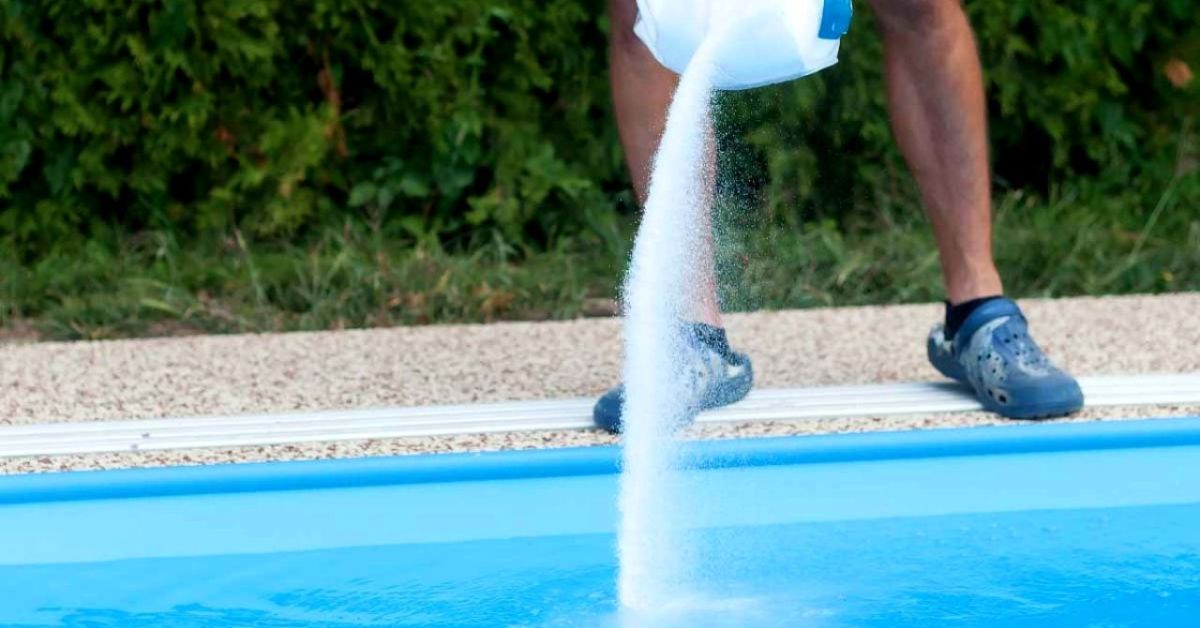Two standard solutions for maintaining water quality in your home are a water softener and a pool. But have you ever wondered if these two seemingly unrelated entities could somehow intersect? The question arises: Can You Use Pool Salt in a Water Softener?
This article will delve into this intriguing query, exploring the compatibility, potential benefits, and important considerations associated with using pool salt in a water softener.
Can You Use Pool Salt in a Water Softener?
One of the most common questions that homeowners ask is whether pool salt can be used interchangeably with the salt used in water softeners. The short answer is, technically, yes. Both pool salt and water softener salt contain sodium chloride, which helps remove hardness from water. However, before you rush to fill your water softener with pool salt, there are some crucial points to consider.
Understanding Compatibility
While pool salt and water softener salt share the same fundamental ingredient, the key difference lies in their purity and additives. Pool salt, or table salt, is specifically designed for swimming pools and may contain certain additives that enhance water quality in a pool environment. On the other hand, water softener salt is manufactured to eliminate the minerals responsible for water hardness efficiently.
Benefits of Using Pool Salt in a Water Softener
Cost-Effectiveness
Pool salt is generally more affordable and widely available than specialized water softener salt, potentially saving you money in the long run.

Versatility
In emergencies or situations where water softener salt is unavailable, using pool salt temporarily can help maintain the functionality of your water softener.
Similar Composition
Since both salts share sodium chloride as their core component, pool salt can effectively contribute to the ion exchange process in a water softener.
Easy Maintenance
If you already have a surplus of pool salt due to pool maintenance, repurposing it for your water softener can reduce waste and clutter.
Precautions and Considerations
Additives
Some pool salts might contain additives like stabilizers, anti-caking agents, and iodine, which can harm a water softener and its resin bed. These additives may cause clogs or disrupt the ion exchange process.
Purity
Water softeners are designed to work optimally with high-purity salt. Pool salt might contain impurities that could accumulate in the resin bed over time, reducing efficiency.

Resin Bed Damage
The resin bed in a water softener is delicate and can be damaged by certain impurities in pool salt, leading to decreased lifespan and effectiveness.
Warranty Concerns
Using substances other than recommended water softener salt might void the warranty on your water softening system.
Exploring the Idea: Using Pool Salt in a Water Softener
Potential Benefits
At first glance, using pool salt in a water softener might seem plausible due to its sodium chloride content. Sodium, as a key component, is used in both pool salt and water softeners. This similarity might lead to the assumption that pool salt could be a suitable substitute for traditional water-softening salt.
Drawbacks and Challenges
However, several significant challenges arise when considering this approach. Pool salt is generally designed to dissolve quickly, ideal for chlorination but could pose issues within a water softener. The rapid dissolution could lead to a high sodium concentration in the brine tank, potentially affecting the ion exchange.
Moreover, the impurities in pool salt, such as stabilizers and anti-caking agents, could also interfere with the resin’s functionality in the water softener. These additives might cause clogging, impacting the resin’s ability to exchange ions effectively and thus diminishing the softening efficiency.
Feasibility Assessment
In evaluating the feasibility of using pool salt in a water softener, it’s crucial to consider the primary objectives of each substance. Pool salt aims to sanitize and disinfect water, making it suitable for swimming and preventing the growth of pathogens. On the other hand, water softeners focus on reducing water’s mineral content to prevent scale buildup.
The fundamental differences in purpose, composition, and required functionality suggest that while both substances contain sodium chloride, they are not interchangeable. Attempting to use pool salt in a water softener could result in suboptimal performance, potential damage to the equipment, and increased maintenance requirements.
Alternatives to Consider
If you’re hesitant about using pool salt in your water softener, there are alternative solutions to explore:
Evaporated Salt
This high-purity salt is manufactured explicitly for water softeners, minimizing the risk of damage to the resin bed.
Solar Salt
Made through the evaporation of seawater, solar salt is another viable option for maintaining the health and longevity of your water softener.
Rock Salt
While it may contain more impurities than other options, rock salt can still be used in water softeners. Regular maintenance is crucial to prevent build-up.
Conclusion
The answer is yes and no in the grand debate about using pool salt in a water softener. While pool salt shares a similar core ingredient with water softener salt, the variations in purity and additives can significantly impact the functionality and longevity of your water-softening system. For optimal performance and minimal risk, it’s recommended to stick to high-purity salt specifically designed for water softeners. With the right salt choice, you can ensure the continued efficiency of your water softener and enjoy the benefits of softened water throughout your home.

